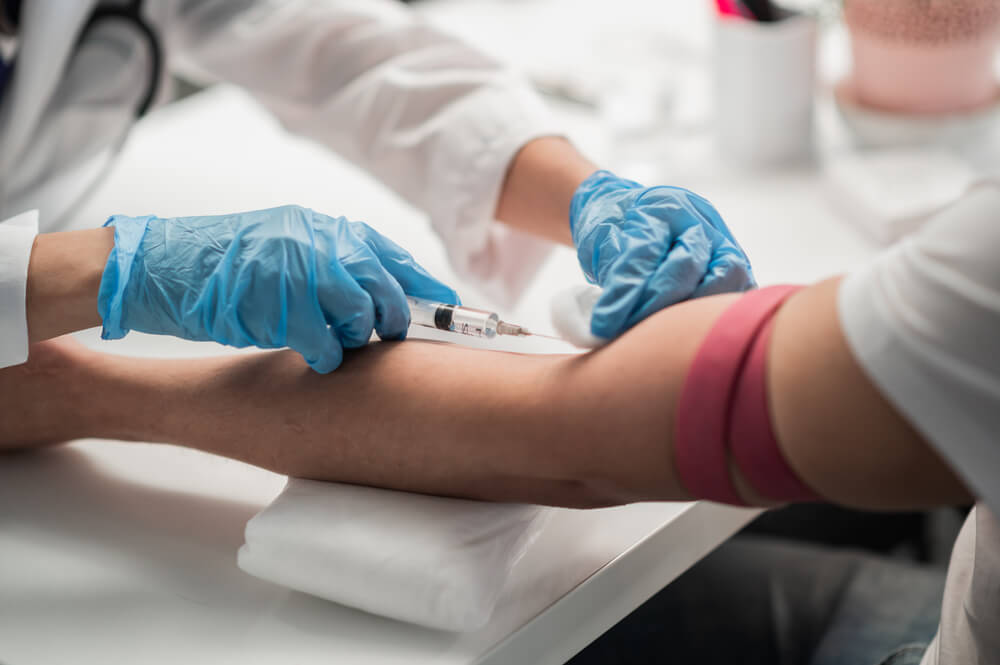
Red Cross says blood donations dropped in Commonwealth, due to the pandemic.
RICHMOND – Virginia needs blood. At a time when the Red Cross is giving more blood than normal to hospitals, fewer people are showing up to donate.
“This has really been happening kind of in line with how society opens back up. [We’ve] been seeing less people showing up for their appointment slots than we were a couple of weeks ago—and definitely less than a couple of months ago,” said Jonathan McNamara, the communications director for the Red Cross in Virginia.
McNamara said some drives that typically collect 30 to 40 units of blood may only collect 20. That’s a 33% to 50% drop in expected donations.
Given the disparity between those who sign up to give blood and those who actually show up, 100 promised donations could result in as low as 50 units given if the trend continues.
“I mean, that’s why we’re coming out more to the community and saying, ‘Hey, look, we understand that there’s more opportunities to maybe get back and do some of the things you’ve been missing during the pandemic, but we really do need to make sure that we’re still focusing on donating blood and making sure that we’re realizing this needs to be a priority,’” McNamara said.
The Need for Blood Is Still There
Signing up for an appointment and then not showing up is not only an issue in Virginia. The trend is nationwide. However, a dip in blood donations is not uncommon for this time of year.
“Summer months are typically tougher for the Red Cross and blood collectors in general, and there’s a lot of reasons for that,” McNamara said. “Typically it’s because schools are out of session. And schools historically are more of a really great source for the Red Cross. They host a lot of blood drives. But other things, just natural things that happen throughout the course of the year. So you see more people go on vacations. It’s nicer out. I know when it’s 70 degrees and sunny, maybe blood donation’s not the first thing on your mind, and we understand that.”
McNamara also noted that the need for blood has less attention on it now than it did a few months ago, when donations initially dropped.
“At the beginning of the pandemic, we saw a massive drop in blood donations coming into the Red Cross system,” McNamara said. “And obviously the number one reason for that was safety concerns. People were concerned about leaving their homes. Many of the organizations, businesses, schools that we rely on to host blood drives went remote. So when they went remote, it became really challenging for us to find partners to host blood drives. That had a significant impact on our supply.”
Thankfully, postponing elective surgeries helped ease the demand. But now the COVID-19 restrictions have been lifted. That means everything put on hold over the last year is being rescheduled.
“You start to see more people out doing the things [they did before],” McNamara said. “More people go to the doctor. You’re [also] going to see more elective surgeries.”
‘It Is Critical to Keep Donating’
Teddy Martin, II, a Henry County resident and 14-time blood donor, stressed the importance of donating blood, especially during the global health crisis.
“It is critical to keep donating, even more so in a pandemic,” Martin said. “Convalescent plasma has been a key part of treating COVID patients. The Red Cross is testing donors for antibodies. The need to help save patients’ lives does not stop. It is essential. The life you help save may be your own or someone near and dear to you.”
Martin first donated blood after doctors diagnosed his aunt Brenda Riggins—whom he called Granny Brenda—with cancer in 2014. Red Cross computer records, which date back to 1997, account for approximately nine gallons of blood Riggins donated. She donated blood 128 times, totaling approximately 16 gallons overall, but could no longer give after the diagnosis.
Martin offered to give blood in Riggins’ place. Following her death in 2014, Riggins’ family decided to hold a bi-annual community blood drive in her memory.
In December 2020, the drive had the most success to date with 65 donors rolling up their sleeves. Since the drive started in 2015, the community has made over 500 blood donations in Riggins’ honor. The next blood drive will take place on July 10 from 9 a.m. to 3 p.m. at Stanleytown Elementary School in Stanleytown.
Can You Give Blood in a Pandemic?
According to the Red Cross, the blood donation process typically takes one hour from start to finish. The donation itself takes up to 10 minutes on average.
Those who are healthy and feeling well at the time of donation and meet standard eligibility requirements may donate blood. The Red Cross also follows a 12-step safety protocol at every donation site. Some items include wearing and changing gloves often, wiping down donor-touched surfaces after every person, and using sterile collection sets for every donation.
The Red Cross noted that there is no data or evidence that the coronavirus is transmissible by blood transfusion. There have been no reported cases worldwide of transmissions for any respiratory virus including this coronavirus.
All Blood Types Are Welcome
While there is a pressing need for O-positive, all types are welcome, McNamara said.
“The reason we say ‘all blood types,’ and this is really key is that, you never know when there’s going to be a trauma situation or a situation where somebody needs a rare marker in their blood, potentially. So we have to have a diverse blood supply on hand,” McNamara explained. “And when I say ‘diverse blood supply,’ I don’t only mean diversity by blood type. I also mean blood supply by the diversity of donors because you take a condition like sickle cell, for example, any patients with sickle cells typically can only receive blood transfusions from another African American donor because [of] the markers that are present in the blood.”
If you’re wondering whether or not you can donate after having gotten the COVID-19 vaccine, the answer is yes.
“If you have had a COVID vaccine, you only have to wait 48 hours after that in order to donate blood,” Ballad Health Chief Operating Officer Eric Deaton said during a press conference last week. “Even if you’ve already had one and are waiting on your second, you can still go donate.”
Consider Donating Plasma
Virginians who have recovered from the virus are also being asked to consider donating plasma, which contains antibodies that can help current patients battling the virus. You must be at least 17 years of age and weigh at least 110 pounds. One donation could save up to four lives.
“This really does come from the community,” McNamara said. “[We] really want people to understand the significant role they play in this process. It’s their donations, their gifts that allow us to do our job. And I can’t think of anything more personal than somebody being willing to give literally a piece of themselves to support their neighbors. It’s appreciated not only by the Red Cross, but appreciated by the patients we serve.”
To register, simply visit the American Red Cross website or download the Blood Donor app. The day of the donation, all preregistered participants need is a valid driver’s license and a face mask, due to pandemic precautions.
Amie Knowles reports for The Dogwood. You can reach her at [email protected]m.
Politics

Youngkin, Democrats to start over on budget talks
The Republican governor stood with Democratic leaders in the General Assembly on Wednesday in a bid to ease tensions over their budget debate....

VIDEO: Domestic abuse victims speak out against the gun law bills Gov. Glenn Youngkin vetoed
Senate Bill 47 and House Bill 46 aim to close the loophole that allows offenders to transfer their firearms to someone else instead of relinquishing...
Local News

Virginia verses: Celebrating 5 poetic icons for National Poetry Month
There’s no shortage of great writers when it comes to our commonwealth. From the haunting verses of Edgar Allan Poe, who found solace in Richmond's...

Join the fun: Recapping Family Literacy Night’s storybook adventures
When’s the last time you read a book aloud with a loved one? If it’s difficult to answer that question, then maybe it’s time to dust off that TBR...





